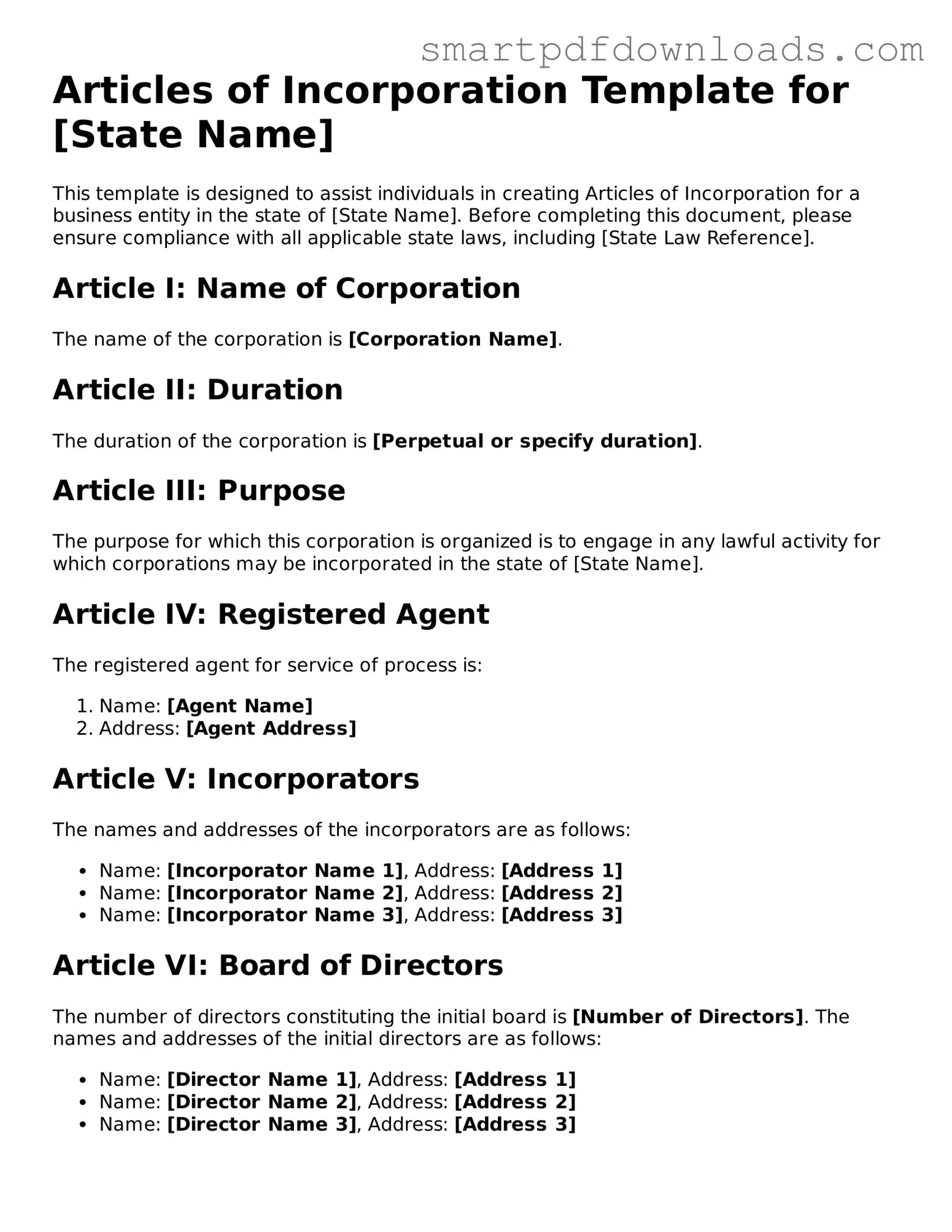Free Articles of Incorporation Form
The Articles of Incorporation form is a legal document that establishes a corporation in the United States. This form outlines essential details about the business, including its name, purpose, and structure. Understanding how to complete this form is crucial for anyone looking to start a corporation.
Edit Articles of Incorporation Online

Free Articles of Incorporation Form
Edit Articles of Incorporation Online

Edit Articles of Incorporation Online
or
⇓ PDF File
Finish the form and move on
Edit Articles of Incorporation online fast, without printing.